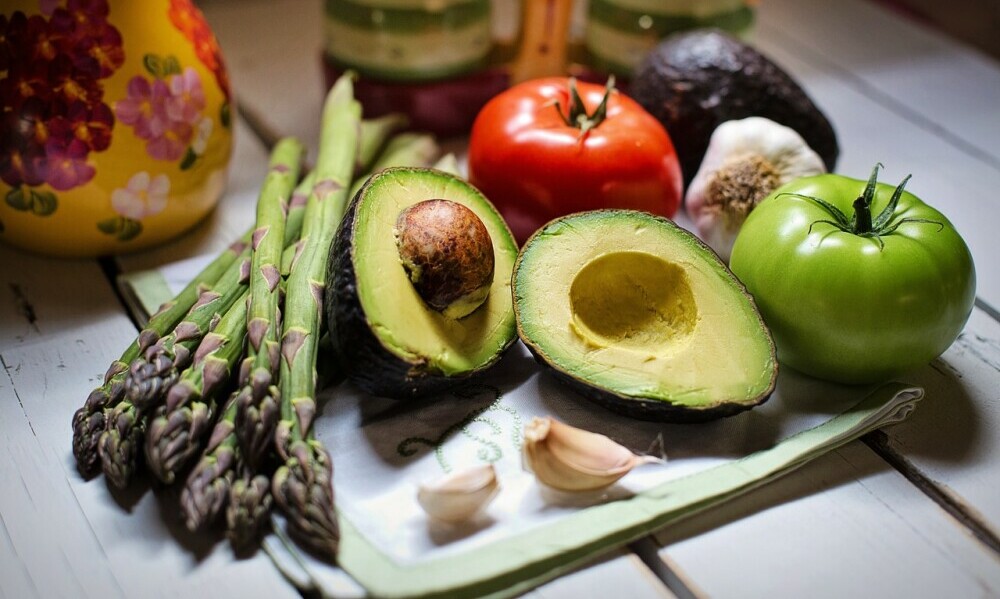If you’re curious about intermittent fasting, you’re not alone. It’s a topic gaining quite a buzz for its potential health benefits and flexibility. But what exactly is intermittent fasting? At its core, it’s an eating pattern that cycles between periods of fasting and eating. The beauty of it lies in its simplicity: there are no strict meal plans or calorie counting. Instead, you focus on when and not just what to eat.
Different methods fall under the umbrella of intermittent fasting, ranging from the 16:8 method, where you fast for 16 hours and eat during an 8-hour window, to the 5:2 strategy, involving normal eating for five days and reducing calorie intake for two non-consecutive days each week. Some people even opt for full-day fasts or ‘eat-stop-eat’ approaches.
The health perks linked to intermittent fasting are impressive and diverse. Studies suggest it can lead to weight loss, improved metabolic health, and a longer lifespan. It’s not just a diet trend; for many, it’s a sustainable way of living that contributes to better health and increased discipline regarding eating habits.
Do you want to learn more? Check out my Intermittent Fasting 101 article.
With the benefits above, it’s no wonder intermittent fasting is becoming a household name. Yet, when coupled with veganism – a diet that excludes all animal products – intermittent fasting presents unique challenges. But don’t worry, the synergy of these two lifestyle choices can offer remarkable health outcomes when done thoughtfully. That will include ensuring your body gets all the proper nutrients during your eating windows.
First, let’s delve into the principles of a vegan diet. You’ll learn about the essential nutrients that need special attention and how to ensure your fasting protocol complements rather than compromises your vegan lifestyle.
The Vegan Diet: Principles and Nutritional Considerations
The vegan diet is more than just a way of eating; it’s a commitment to a lifestyle free of animal products for ethical, environmental, and health reasons. If you’re new to veganism, keep in mind that it involves excluding all meat, dairy, eggs, and other animal-derived ingredients from your diet.
Adhering to a vegan diet means being vigilant about getting enough vitamins and minerals that are readily available in animal products. Nutrients such as protein, iron, calcium, vitamin B12, and omega-3 fatty acids can be more challenging but essential for maintaining good health.
One common concern is the risk of nutritional deficiencies. Without careful planning, vegans might miss crucial vitamins D, zinc, and iodine. However, fear not! A well-structured vegan diet, fortified foods, and supplements can help bridge these gaps.
Embracing a plant-based regime can be incredibly beneficial. It’s typically high in dietary fiber, antioxidants, and phytonutrients, which may contribute to a reduced risk of chronic diseases. Plus, vegans often report increased energy levels and improved digestion due to the high intake of wholesome, plant-based foods.
So, before jumping into intermittent fasting as a vegan, it’s vital to understand and master the basics of vegan nutrition. This ensures your fasting periods are powered by nutrient-dense foods, keeping you satiated and nourished. In the next section, I will guide you through the setup to start intermittent fasting as a vegan—the intelligent way.
How to Do Intermittent Fasting as a Vegan: Getting Started

If you’re curious about integrating intermittent fasting into your vegan lifestyle, I’m here to help you with the basics. The question isn’t just whether you can do intermittent fasting as a vegan but how to do it smartly to maintain your health while reaping the benefits.
Choosing a suitable intermittent fasting method is crucial. You’ve got options like the 16:8 method, where you fast for 16 hours and eat within an 8-hour window, or the 5:2 approach, which involves eating normally for five days and reducing calorie intake for two non-consecutive days a week. Each method has advantages, so pick one that aligns with your schedule and hunger patterns.
When planning your vegan eating windows, focus on nutrient-dense foods. Think about incorporating a variety of fruits, vegetables, legumes, nuts, and seeds to cover all your nutritional bases. Aim to eat enough calories during your eating periods to sustain you through the fasting windows without overindulging to compensate for the fast.
It’s important to avoid heavily processed vegan foods. These can be tempting, especially when breaking a fast, but they’re often high in sugar and lacking in the nutrients your body needs. Stick to whole foods that provide sustained energy and keep you feeling fuller for longer.
Don’t underestimate the importance of staying hydrated. Water is your best friend during fasting, but herbal teas and black coffee are also helpful. They can help manage hunger and keep your hydration levels up without breaking your fast.
Meal Planning for Vegan Intermittent Fasting

Fasting doesn’t mean you can skimp on nutrition, especially when adhering to a vegan diet. Meal planning is your golden ticket to ensuring that you get all the nutrients you need to thrive when you eat. This is crucial, given you have a smaller eating window to obtain the necessary nutrients.
Here are some sample meal ideas to think about:
- Imagine starting your day with a powerhouse smoothie with spinach, hemp seeds, and berries.
- If it’s time to break your fast, you could opt for a quinoa salad with colorful veggies and topped with avocado for those essential healthy fats.
Meal prep isn’t just trendy; it’s a lifesaver. Spending a few hours on meal prep each week can help you stay committed to your vegan intermittent fasting plan. Think big batches of freezer-friendly stews, curries, and soups that make perfect go-to meals.
Mixing up high-protein foods like tofu, tempeh, and lentils with high-fiber choices like beans, nuts, and whole grains means you’re ticking all the nutritional boxes while keeping things interesting on the palate. This variety isn’t just about taste; it’s about ensuring a wide range of vitamins and minerals.
Why not create a weekly meal plan that resonates with you? That way, you’re excited about your meals and more likely to stick with the intermittent fasting schedule without feeling deprived.
Overcoming Challenges and Staying Motivated on a Vegan Intermittent Fasting Journey
If you’re new to the vegan intermittent fasting lifestyle, you might encounter some obstacles. But don’t worry too much about those obstacles; they’re just stepping stones to your success. Let’s tackle the common challenges and learn to stay the course with determination and a positive mindset.
Navigating social dynamics while sticking to your fasting schedule can be tricky. You might be at a brunch buffet when your eating window isn’t until dinner. Stay firm in your commitment, and remember why you started this journey. It’s also okay to be flexible on special occasions; your first attempt doesn’t need to be your last.
When hunger pangs strike, reaching for food in sight can be tempting. But these moments are opportunities to listen to your body and react thoughtfully. Keep hydrated, and remember those high-protein and high-fiber foods that can help you feel more satisfied when it’s time to eat.
Tracking your progress is vital. Use a journal or an app to monitor your fasting intervals and your body’s responses to different foods. It’ll help you customize your fasting routine to what works best for you. And if something isn’t quite right, adjusting your approach down the road is great.
Most importantly, don’t forget to practice self-care. This isn’t just about food; it’s about your overall well-being. Intermittent fasting as a vegan should complement your lifestyle and align with your health goals. So, choose something that resonates with you, and let your intuition guide you.
I hope you’ve found this article insightful and given you the tools to embark on your vegan intermittent fasting journey with confidence.
Be gentle with yourself, embrace the learning curve, and celebrate every milestone, small or large.
Remember, you’ve got this!
Interested in combining Intermittent Fasting with other diets? Check these posts out:

Wow, this is quite an insightful exploration of combining intermittent fasting with a vegan lifestyle! It seems like a thoughtful approach to maintaining health while adhering to ethical and environmental values. How do you think someone new to both veganism and intermittent fasting should start their journey? Should they focus on mastering veganism first before incorporating fasting, or is it beneficial to dive into both simultaneously?
Also, the mention of meal planning as a crucial element really stands out. Do you find that people often underestimate the importance of planning ahead to ensure they get all the necessary nutrients? What are some common pitfalls you’ve noticed or any tips you might have for someone just starting this lifestyle?
I always encourage people to start slow and build up to their goals. So, if someone is new to both veganism and intermittent fasting, the better approach might be to start with one and then incorporate the other when they feel that they have gotten used to the change of the first. I would suggest starting with veganism, as that changes what you eat/drink and the changes you must understand to make it work. Then, working on intermittent fasting, changing when you eat is a different change that should occur after changing what you eat.
People often underestimate the importance and value of planning ahead. I know I did. I have a busy lifestyle, and I made things more complicated for myself when I didn’t properly plan ahead and sometimes compromised my nutrition both before and after starting Intermittent Fasting.
However, one of the common pitfalls that I have encountered and noticed is that sometimes, people plan things too hard and get stuck in that plan. We all know that life happens, and plans can go awry, so not being able to adjust or allow some spontaneity, because sometimes planning to anticipate some unexpected changes also helps you reduce any frustrations.